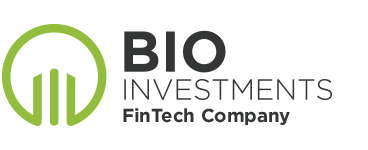Interview With John Patrick Mullin: Blockchain is a Global Community
John Patrick Mullin is an investment banker, speaker, writer and a big fintech and edtech enthusiast. Senior research analyst at the Guotai Junan Securities & Finance Institute, John currently focuses on fintech, covering AI/ML, Blockchain and cryptocurrencies, P2P lending, etc.
In his spare time, he serves as a community partner for the FinTech Connector. He is also advising several Blockchain companies in Hong Kong, Switzerland and the US. He writes about his experience working in the Chinese financial sector for LinkedIn China, and about cryptocurrencies and fintech innovation for Cointelegraph.
We caught John at the BlockShow Asia to talk about those issues which are usually not discussed by him as a Cointelegraph author[1] – his background, travels, education and personal views on the development of the community.
Cointelegraph: We’re here today with John Patrick Mullin, community partner at FinTech Connector. Community, connector- how do you actually feel yourself, which role do you play?
John Patrick Mullin: Yes, sure. Let me maybe explain what FinTech Connector is as a whole. FinTech Connector is a global community of fintech-minded people. It was founded by a guy named Angel Lorente in New York. It was born out of the MIT fintech coworking community. They sit in the class, and Angel, who works in Morgan Stanley, started doing meet-ups locally in New York City, where he was working. First, it started with just two people talking in a bar about fintech, which ended up growing within the first month to 30 people. Now, we are actually 19 cities, 19 communities in 13 countries – that’s within just one year. Our mission is to try to connect the global fintech community through our local leadership, I would say. We are connecting innovators with our fintech entrepreneurs, start-ups with the experts of fintech, veterans, people who have capital, technology, etc.
We’re doing it on a global scale. The problem we are trying to solve is really that you have a lot of fintech communities, but they are regional, very localized, but we’re global already. We’re in every continent except for Australia and Arctic, but Australia is coming very quickly. That’s kind of what we are trying to do. It’s really about what we are trying to do on a local level, I mean, I’m heading up the local Shanghai FinTech Connector together with my partner Rold. We try to educate, nurture, develop, and do events to build a community locally to be able to better support our global ambition, I suppose.
CT: Well, that’s a great initiative. We are here at a community gathering in Singapore. How do you feel being at BlockShow Asia and how do you find this community that gathered today?
JOHN: So far, very good, honestly. Thank you very much for having me first. I actually write for Cointelegraph, so very happy to be a part of not only the writing community of Cointelegraph but also at the Blockshow which is an offline event. FinTech Connector has a Singapore cowork, and we’re here today which is very cool as well to for me to be able to see them. It was really good to be a part of and see how me being in Shanghai is able to connect with people in Singapore as well. You see how small the community is, everyone knows each other, but it’s a close-knit community and it’s always good to work together, to be the intelligence of fintech, of Blockchain, cryptocurrencies, etc.
CT: Do you think there are differences between communities in different places? I mean, in Asia, in Europe, in the US?
JOHN: Oh, 100 percent! Even in China. China is a very, very big country. You see differences just between Beijing and Shanghai. It’s very regionalized, it’s very localized and there are definitely differences in how people act, what you’re looking at. Hong Kong has one way of being within the fintech community, Singapore has another one. China is very, very different as well. I am personally a little bit Asia-centric, although I am from the West, I just haven’t lived there for a while. But you’ll definitely see differences depending on where you’re going to be.
CT: You mentioned MIT. Is it your background?
JOHN: I did not go to MIT. MIT had an online fintech course called The Future of Commerce and it was about big data analytics. Together with EdX, it started to get smarter. They did that, I guess, two years ago. Most recently, they partnered with Oxford, so they do Oxford fintech course. Actually, I am taking part in it right now. It’s quite an interesting course so far. It’s really good for networking connections. I even met with some of my Oxford colleagues here today who posted it on our little Telegram group which is pretty cool. I met up with people down in Hong Kong. I met with even some of the professors who came from Shanghai. It’s really a great opportunity to network with people from the fintech community and I put some theoretical backing just to a general understanding of fintech.
CT: Speaking of academia and fundamental inspiration. What was your recent reading that inspired you the most?
JOHN: The recent reading that inspired me the most… Uh, good one! To be honest, this is maybe not so specific to Blockchain and cryptocurrency, but one of my favorite personal books… Well, actually, I have two. The first one is “Dealing with China” by Henry Paulson, who was a former Goldman Sachs CEO and then Treasury Secretary under George W. Bush. He talked about his experiences and how he did business with China – and this is really inspired a lot of things I’m doing. The second one would be “One Hour in China” book by Jeffrey Towson and Jonathan Woetzel. Jeffrey Towson is a professor at Beijing University, Peking University and Jonathan Woetzel is a partner at McKinsey in Shanghai. They wrote a book that condenses everything you need to know about China into one hour. It started inspiring me to write a lot about Chinese consumers. I do a lot of writings. I write for LinkedIn China, I write for Cointelegraph. Those two books formed me in what I’m trying to do.
CT: Interesting. Do you speak Chinese?
JOHN: [speaks Chinese]. That’s probably my limit, in fact, I must say. I need to work on it.
CT: You have a nice accent.
JOHN: [laughing] Thank you! China is my fifth country. I was born in the US, I went to school in Spain for four years, I lived in Belgium for a little bit, I lived in Germany, and most recently China flipped past two and a half. If I’ve ever been around the world, I would definitely say I am a global citizen at this point. I haven’t lived in the US for the last eight years now, so been around and I’m always looking for a next adventure, I suppose.
CT: Interesting. I think that is where the Blockchain is. A global community and it’s great.
JOHN: It really is a global community!
CT: Thank you very much for being here with us today.
JOHN: My pleasure!
Check out another Cointelegraph interview with John Patrick Mullin on fintech trends and Blockchain technology:

